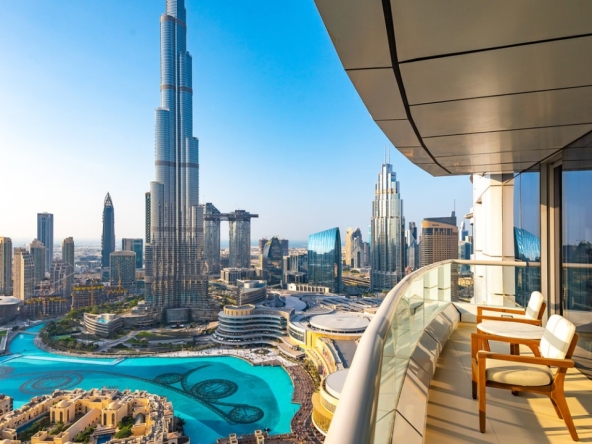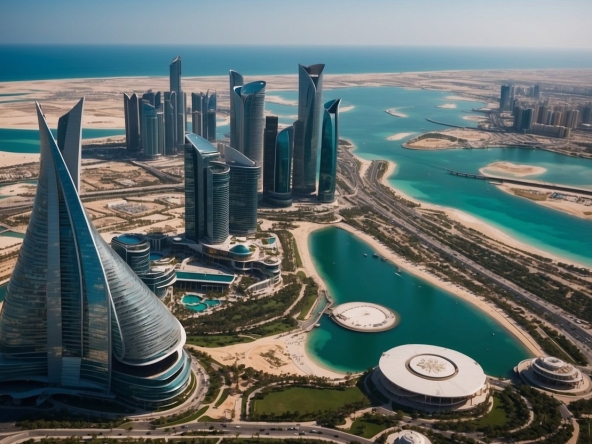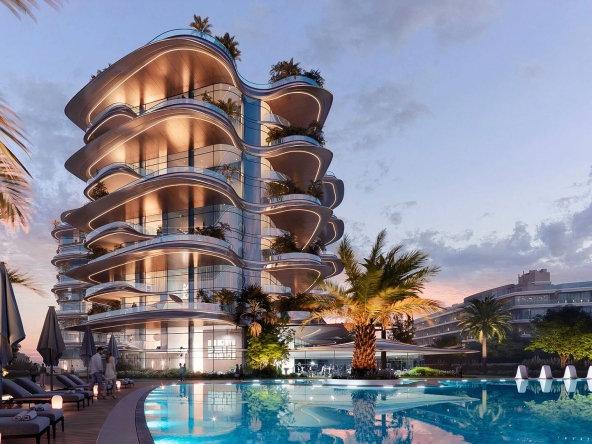In the United Arab Emirates, energy efficiency has become a pressing issue due to the growing population and thriving economy, as well as the high energy consumption that cannot be maintained indefinitely. However, the Emirate is leading the way in ecologically responsible buildings with its sustainability programs and long-term solutions. The need for ecologically sound building practices is becoming more apparent in the Middle Eastern real estate market. The Municipality has implemented a comprehensive grading system for evaluating property energy efficiency ranking Dubai. Regulation has also been established to define the baseline requirements for retrofitting existing structures.
The UAE is rated 14th globally for having the most significant national concentration of sustainable structures, with 869 green-rated buildings. Sustainable innovations like solar panels might boost the UAE’s property market. As sustainability and the green economy continue to dominate the business world, construction companies in the United Arab Emirates are considering creating more eco-friendly buildings.
Dubai’s New Building Grading System
The Municipality uses the Al Sa’fat grading system for property energy efficiency ranking in Dubai. The system was created to promote excellent performance at all stages of a building’s life cycle, including pre-design, design, construction, and operation. Green building ratings are broken down into four tiers: platinum, gold, silver, and bronze by Circular No. 222. Platinum status is the highest possible, with all buildings required to meet at least the standards for the bronze category. Private residential villas and industrial buildings are mandated to adhere to bronze requirements. On the other hand, investment villas, public structures, and multi-story or floor-level buildings must meet basic, bronze, and silver standards. However, it’s entirely optional for all buildings to meet platinum and gold requirements.
A Major Design Constraint: Improved Energy Efficiency
Energy efficiency is a significant consideration in designing and constructing efficient buildings. The goal is to make buildings greener and more eco-friendly for their inhabitants while also helping the environment. Energy efficiency is a collective effort that begins with individual behavior change and can transform the UAE’s energy future. Last year, Dh300 billion was transacted in the real estate market in Dubai due to the rising demand from homebuyers to buy Dubai property. Adherence to construction codes benefits the community as a whole. More efficient use of energy will benefit every segment of the economy.
Smart Cities To Improve Efficiency At The Intersection Of Different Infrastructure Sectors
U.N. projections show that by 2050, 91% of UAE residents will live in urban areas. It means that integrated infrastructure development should be a part of any UAE urban master plan. With the help of technological advancements, city planners in smart cities can maximize efficiency in previously underutilized areas of urban infrastructure. Most people in the United Arab Emirates (80%) want to move to a smart city. As more people become aware of the advantages of a smart city, these communities are expected to triple by 2025. Smart cities take a more holistic approach to urban living by providing amenities like integrated transportation, clean air, high quality water, and leisure areas.

UAE Real Estate Is On The Verge Of A Sustainable Future
Real estate sales in Abu Dhabi totaled $6.1 billion in the first half of 2022, showcasing the UAE’s robust market. It was confirmed again in July when $2.9 billion worth of deals were closed in one week. Multiple factors have contributed to the UAE’s real estate industry’s recovery after the Covid-19 outbreak, one of which is the country’s willingness to change with the times. Among the goals of Dubai 2040 is to increase the city’s green areas by more than 100 percent. If achieved, this target will significantly aid the United Arab Emirates in reaching its Net Zero 2050 target.
Sustainable Building Presents A Golden Financial Opportunity
Real estate developers are striving to increase the sustainability of their buildings in response to the rising demand for such structures. As the value of environmentally responsible building practices becomes increasingly apparent, the market for eco-friendly properties is poised to soar. It’s becoming more apparent to businesses in the building sector that they must adapt to reach Net Zero objectives. The UAE Energy Strategy 2050 strives to reconcile economic and environmental objectives using green energy. The global market for green construction supplies is expected to be worth $673.41 million. In addition, the value of the smart building industry is expected to increase from $80.62 billion in 2022 to $328.62 billion in 2029. Thus, to keep up with the increased demand for energy and ensure the economy’s long-term prosperity, the government plans to invest a total of Dh600 billion.
The Bottom Line
One thing is sure about the way we’ll live, design our houses in the future and buy property in Dubai: they’ll be smart and sustainable. Growing population and economic expansion have pushed the UAE towards energy efficiency. As time passes, sustainability becomes an even more pressing concern. People in the UAE are seeking a more eco-friendly approach to buying Dubai property as the country strives to become more sustainable. Now is the time for real estate developers to seize this moment.



